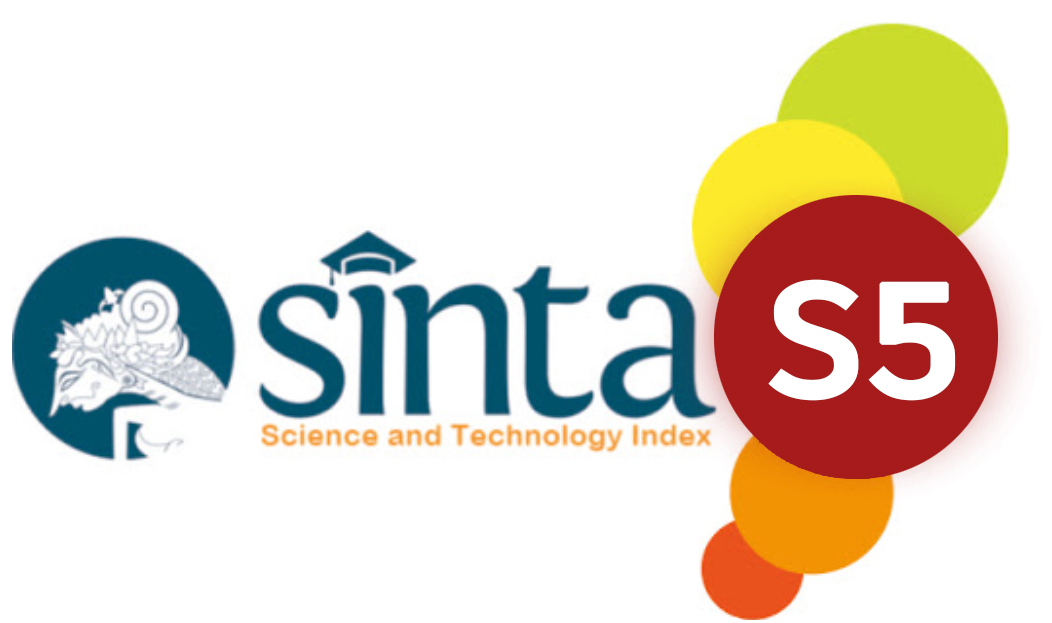A Meta-Analysis Review of The Influence of Digital Technology on The Learning Outcomes of civil engineering students
DOI:
https://doi.org/10.31004/riggs.v4i2.469Keywords:
Meta-Analysis, Digital Technology, Learning Outcomes, Civil EngineeringAbstract
This study aims to comprehensively examine the influence of the use of digital technology on student learning outcomes in the Civil Engineering study program through a meta-analysis approach. Digital technologies, such as e-learning, software-based simulations, and online collaborative platforms, have become an integral part of the learning process in the Industrial Revolution 4.0 era. However, its effectiveness in improving the learning outcomes of Civil Engineering students still shows mixed findings. The study collects and analyzes quantitative data from a wide range of relevant empirical research, published in the span of the last ten years. The results of the meta-analysis of 13 studies showed that overall, digital technology had a positive and significant influence on the learning outcomes of Civil Engineering students (g = 1.142; p < 0.001) in the high effect size category. These findings provide important implications for the development of technology-based learning strategies in higher education, especially in improving the competencies of Civil Engineering students effectively and adaptively.
Downloads
References
Ahmad, I. F., Setiawati, F. A., Prihatin, R. P., Fitriyah, Q. F., & Thontowi, Z. S. (2024). Technology-based learning effect on the learning outcomes of Indonesian students: a meta-analysis. International Journal of Evaluation and Research in Education , 13(2), 892–902. https://doi.org/10.11591/ijere.v13i2.25383
Ali, M., Nurhayati, R., Wantu, H. M., Amri, M., & Santosa, T. A. (2024). The Effectiveness of Jigsaw Model Based on Flipped Classroom to Improve Students ’ Critical Thinking Ability in Islamic Religious Education Learning. Jurnal Obsesi : Jurnal Pendidikan Anak Usia Dini, 8(5), 1069–1078. https://doi.org/10.31004/obsesi.v8i5.6190
Alshammary, F. M., & Alhalafawy, W. S. (2023). Digital Platforms and the Improvement of Learning Outcomes: Evidence Extracted from Meta-Analysis. Sustainability (Switzerland), 15(2). https://doi.org/10.3390/su15021305
Asnur, L., Jalinus, N., Faridah, A., Apra, T., Ambiyar, R. D., & Utami, F. (2024). Video-blogs ( Vlogs ) -based Project : A Meta Analysis. 14(5), 1553–1557.
Badawi et al. (2023). Integration of Blended Learning and Project-Based Learning (BPjBL) on Achievement of Students’ learning goals: A Meta-analysis study. Pegem Journal of Education and Instruction, 13(4). https://doi.org/10.47750/pegegog.13.04.32
Borenstein, M., Hedges, L., & Rothstein, H. (2007). Introduction to Meta-Analysis. www.Meta-Analysis.com
Daryanto, E., Siregar, B., & Januariyansah, S. (2022). A Meta-Analysis of the E-Learning Influence on Vocational Education and Training (VET): Preliminary Study of Virtual to Actualization. International Journal of Education in Mathematics, Science and Technology, 10(3), 710–721. https://doi.org/10.46328/ijemst.2509
Dewanto, D., Wantu, H. M., Dwihapsari, Y., Santosa, T. A., & Agustina, I. (2023). Effectiveness of The Internet of Things (IoT)-Based Jigsaw Learning Model on Students’ Creative Thinking Skills: A- Meta-Analysis. Jurnal Penelitian Pendidikan IPA, 9(10), 912–920. https://doi.org/10.29303/jppipa.v9i10.4964
Edy Nurtamam, M., Apra Santosa, T., Aprilisia, S., Rahman, A., & Suharyat, Y. (2023). Meta-analysis: The Effectiveness of Iot-Based Flipped Learning to Improve Students’ Problem Solving Abilities. Jurnal Edumaspul, 7(1), 2023–1492.
Elfira, I., & Santosa, T. A. (2023). Literature Study : Utilization of the PjBL Model in Science Education to Improve Creativity and Critical Thinking Skills. Jurnal Penelitian Pendidikan IPA, 9(1), 133–143. https://doi.org/10.29303/jppipa.v9i1.2555
Gijbels, D., Dochy, F., Van Den Bossche, P., & Segers, M. (2005). Effects of problem-based learning: A meta-analysis from the angle of assessment. Review of Educational Research, 75(1), 27–61. https://doi.org/10.3102/00346543075001027
Hariyadi, S., Santosa, T. A., & Sakti, B. P. (2023). Effectiveness of STEM-Based Mind Mapping Learning Model to Improve Students ’ Science Literacy in the Era of Revolution. Jurnal Penelitian Pendidikan IPA, 9(10), 791–799. https://doi.org/10.29303/jppipa.v9i10.5125
Hidayat, H., Anwar, M., Harmanto, D., Dewi, F. K., Orji, C. T., & Isa, M. R. M. (2024). Two Decades of Project-Based Learning in Engineering Education: A 21-Year Meta-Analysis. TEM Journal, 13(4), 3514–3525. https://doi.org/10.18421/TEM134-84
Ichsan, I., Suharyat, Y., Santosa, T. A., & Satria, E. (2023). Effectiveness of STEM-Based Learning in Teaching 21 st Century Skills in Generation Z Student in Science Learning: A Meta-Analysis. Jurnal Penelitian Pendidikan IPA, 9(1), 150–166. https://doi.org/10.29303/jppipa.v9i1.2517
Li, J., & Liang, W. (2024). Effectiveness of virtual laboratory in engineering education: A meta-analysis. PLoS ONE, 19(12), 1–23. https://doi.org/10.1371/journal.pone.0316269
Luciana, O., Sjoraida, D. F., Santosa, T. A., Nugraha, A. R., & Zain, A. (2024). The Effect of Technology-Based Management Learning on Children ’ s Organizational Skills Development : A Meta-Analysis Approach. Jurnal Obsesi: Jurnal Pendidikan Anak Usia Dini, 8(6), 1777–1786. https://doi.org/10.31004/obsesi.v8i6.6593
Miehko, G. M. (2008). Meta-analysis of effectiveness of technology use in undergraduate engineering education. Proceedings - Frontiers in Education Conference, FIE, 1–6. https://doi.org/10.1109/FIE.2008.4720455
Oktarina, K., Suhaimi, Santosa, T. A., Razak, A., Irdawati, Ahda, Y., Lufri, & Putri, D. H. (2021). Meta-Analysis: The Effectiveness of Using Blended Learning on Multiple Intelligences and Student Character Education During the Covid-19 Period. International Journal of Education and Curriculum Application, 4(3), 184–192. http://journal.ummat.ac.id/index.php/IJECA/article/view/5505
Santhosh, M., Farooqi, H., Ammar, M., Siby, N., Bhadra, J., Al-Thani, N. J., Sellami, A., Fatima, N., & Ahmad, Z. (2023). A Meta-Analysis to Gauge the Effectiveness of STEM Informal Project-Based Learning: Investigating the Potential Moderator Variables. Journal of Science Education and Technology, 32(5), 671–685. https://doi.org/10.1007/s10956-023-10063-y
Santosa, T. A., Agustina, N., & Yulianti, S. (2020). Jenis Tumbuhan Liar Dalam Upacara Adat Kenduri Seko Di Kerinci. Pendekar: Jurnal Pendidikan Berkarakter, 3(1), 6–10. http://journal.ummat.ac.id/index.php/pendekar/article/view/2798
Santosa, T. A., Ali, M., Safar, M., Amri, M., Ruchiat, A., & Sjoraida, D. F. (2025). Inquiry-Based Learning and Critical Thinking Skills of Higher Education Students in the Era of Revolution 5 . 0 : A Meta-analysis. CUESTIONES DE FISIOTERAPIA, 54(3), 5156–5166.
Santosa, T. A., Angreni, S., Sari, R. T., Festiyed, Yerimadesi, Ahda, Y., Alberida, H., & Arsih, F. (2024). Effectiveness of Higher Order Thinking Skills-based Test Instruments in Science Learning in Indonesia: A Meta-analysis. Jurnal Penelitian Pendidikan IPA, 10(5), 242–249. https://doi.org/10.29303/jppipa.v10i5.6654
Springer, L., Stanne, M. E., & Donovan, S. S. (1999). Effects of small-group learning on undergraduates in science, mathematics, engineering, and technology: A meta-analysis. Review of Educational Research, 69(1), 21–51. https://doi.org/10.3102/00346543069001021
Tamur, M., Juandi, D., & Kusumah, Y. S. (2020). The effectiveness of the application of mathematical software in indonesia; a meta-analysis study. International Journal of Instruction, 13(4), 867–884. https://doi.org/10.29333/iji.2020.13453a
Utomo, W., Suryono, W., Santosa, T. A., & Agustina, I. (2023). The Effect of STEAM-Based Hybrid Based Learning Model on Students ’ Critical Thinking Skills. Jurnal Penelitian Pendidikan IPA, 9(9), 742–750. https://doi.org/10.29303/jppipa.v9i9.5147
Wantu, H. M., Muis, A., Zain, A., Hiola, S. F., Agustina, I., Santosa, T. A., Yastanti, U., & Nugraha, A. R. (2024). Effectiveness of Think-Pair-Share and STEM Models on Critical Thinking in Early Childhood Education. Jurnal Obsesi: Jurnal Pendidikan Anak Usia Dini, 8(5), 1320–1330. https://doi.org/10.31004/obsesi.v8i5.6202
Willson, V. L., & Putnam, R. R. (1982). A Meta-analysis of Pretest Sensitization Effects in Experimental Design. American Educational Research Journal, 19(2), 249–258. https://doi.org/10.3102/00028312019002249
Wu, X. Y. (2024). Exploring the effects of digital technology on deep learning: a meta-analysis. In Education and Information Technologies (Vol. 29, Issue 1). Springer US. https://doi.org/10.1007/s10639-023-12307-1
Zulkifli, Z., Satria, E., Supriyadi, A., & Santosa, T. A. (2022). Meta-analysis: The effectiveness of the integrated STEM technology pedagogical content knowledge learning model on the 21st century skills of high school students in the science department. Psychology, Evaluation, and Technology in Educational Research, 5(1), 32–42. https://doi.org/10.33292/petier.v5i1.144
Zulyusri, Z., Santosa, T. A., Festiyed, F., Yerimadesi, Y., Yohandri, Y., Razak, A., & Sofianora, A. (2023). Effectiveness of STEM Learning Based on Design Thinking in Improving Critical Thinking Skills in Science Learning: A Meta-Analysis. Jurnal Penelitian Pendidikan IPA, 9(6), 112–119. https://doi.org/10.29303/jppipa.v9i6.3709
Downloads
Published
How to Cite
Issue
Section
License
Copyright (c) 2025 Tomi Apra Santosa

This work is licensed under a Creative Commons Attribution 4.0 International License.




























